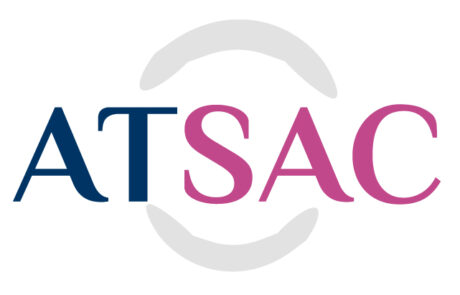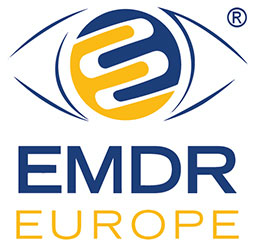Gary McFarlane is an EMDR Association UK member and Accredited EMDR Practitioner
What is EMDR ( Eye movement desensitization and reprocessing)?
EMDR (Eye Movement Desensitization and Reprocessing) is a psychotherapy that enables people to heal from the symptoms and emotional distress that are the result of disturbing life experiences. Repeated studies show that by using EMDR therapy people can experience the benefits of psychotherapy that once took years to make a difference.
It is widely assumed that severe emotional pain requires a long time to heal. EMDR therapy shows that the mind can in fact heal from psychological trauma much as the body recovers from physical trauma. When you cut your hand, your body works to close the wound. If a foreign object or repeated injury irritates the wound, it festers and causes pain. Once the block is removed, healing resumes. EMDR therapy demonstrates that a similar sequence of events occurs with mental processes. The brain naturally does processing and healing during Eye Movement (REM) sleep.
The core assumption is that there is a natural, physically based mechanism in all human beings for processing and resolving disturbing or incongruent life experiences. The brain’s information processing system naturally moves toward mental health.
The Trauma material cannot connect with the person’s awareness. There is a barrier between the acknowledge of present safety & worthiness and the state of re-living the event. The EMDR therapy removes the barrier so that the client can begin connecting the positives & safety of the present with the pain of the past.
After a disturbing event (and it is all about HOW that person’s brain perceives the situation), the processing begins by thinking about the event; talking about it and perhaps dreams about it. As this occurs, the recollection of the events connects with memories of other life events and beginnings to put it in context (whatever that subjective context is for that person’s appropriate and individual overall life narrative).
All post-traumatic dysfunctional memory storage is basically a problem on incomplete integration of the memories of life events. If the system is blocked or imbalanced by the impact of a disturbing event, the emotional wound festers and can cause intense suffering. Once the block is removed, healing resumes. Using the detailed protocols and procedures learned in EMDR therapy training sessions, clinicians help clients activate their natural healing processes.
More than 30 positive controlled outcome studies have been done on EMDR therapy. Some of the studies show that 84%-90% of single-trauma victims no longer have post-traumatic stress disorder after only three 90-minute sessions. Another study found that 100% of the single-trauma victims and 77% of multiple trauma victims no longer were diagnosed with PTSD after only six 50-minute sessions. In another study, 77% of combat veterans were free of PTSD in 12 sessions.
There has been so much research on EMDR therapy that it is now recognized as an effective form of treatment for trauma and other disturbing experiences by organizations such as the American Psychiatric Association, the World Health Organization and the Department of Defense. Given the worldwide recognition as an effective treatment of trauma, you can easily see how EMDR therapy would be effective in treating the “everyday” memories that are the reason people have low self-esteem, feelings of powerlessness, and all the myriad problems that bring them in for therapy. Over 100,000 clinicians throughout the world use the therapy. Millions of people have been treated successfully over the past 25 years.
In successful EMDR therapy, the meaning of painful events is transformed on an emotional level. For instance, a rape victim shifts from feeling horror and self-disgust to holding the firm belief that, “I survived it and I am strong.” Unlike talk therapy, the insights clients gain in EMDR therapy result not so much from clinician interpretation, but from the client’s own accelerated intellectual and emotional processes. The net effect is that clients conclude EMDR therapy feeling empowered by the very experiences that once debased them. Their wounds have not just closed, they have transformed. As a natural outcome of the EMDR therapeutic process, the clients’ thoughts, feelings and behavior are all robust indicators of emotional health and resolution—all without speaking in detail or doing homework used in other therapies.
EMDR therapy involves attention to three time periods: the past, present, and future. Focus is given to past disturbing memories and related events. Also, it is given to current situations that cause distress, and to developing the skills and attitudes needed for positive future actions.
Initial EMDR processing may be directed to childhood events rather than to adult-onset stressors or the identified critical incident if the client had a problematic childhood. Clients generally gain insight on their situation, the emotional distress resolves and they start to change their behaviors. The length of treatment depends upon the number of traumas and the age of PTSD onset. Generally, those with single event adult onset trauma can be successfully treated in under 5 hours. Multiple trauma victims may require a longer treatment time.
What it does
By maintaining simultaneous awareness of both present safety (in the room) and the past event/trauma – using EMDR eye movement or tapping to target Past, Present & Future manifestations of the event memory – the expectant results are these:
- Resolution of the traumatic/unwanted adverse memory;
- Incorpration of the event into the person’s life’s narrative and core sense of self- there is an acknowledgement that “ yes, it happened” + “Yes, it happened to me” + “Yes, it’s over ”;
- An immediate Increase in self esteem.
The accessing and using the Mind’s automatic Information Processing capacity is the significant contribution of EMDR.
What problems can EMDR treat?
Scientific research has established EMDR as effective for post traumatic stress. Clinicians also have reported success using EMDR in treatment of the following conditions:
- Panic attacks
- Complicated grief
- Dissociative disorders
- Disturbing memories
- Phobias
- Pain disorders
- Performance anxiety
- Stress reduction
- Addictions
- Sexual and/or Physical abuse
- Body dysmorphic disorders
- Personality Disorders
Trauma is dysfunctionally stored memories, which creates distortion in recall of the past and also distortion in perception of the present and prediction of the future – Jim Knipe
“Trauma is the external wound, not the internal event” – Gabor Mate
“Trauma is a story that has not moved on”. It is a “story” because of the truths that your brain made of the event when it unfolded; but it may not be the full reality because of the compromised brain functioning at the time of the event – but it is set up in the body – from what all five senses took in at the time.
Various Youtube explanations about EMDR
EMDR (Prince Harry) experience: https://youtu.be/9uE04Blfd-Q?si=MrNZZmCAgmTmOUo7
https://www.bbc.co.uk/sounds/play/m00146w0
https://www.channel4.com/programmes/stephs-packed-lunch/on-demand/72561-032


The Sex, Porn & Love Addiction Podcast – Over 5000 Downloads in just 6 months!
Helping you better understand Sex, Porn & Love Addiction; guiding you through the neuroscience of the brain and sharing what we now better understand about the brain’s involvement, from childhood development. To help you effect change; find the real authentic you (whose truth self went off at a tangent in childhood); so that as you discover and become re-acquainted with the real you, having learnt to like yourself, you are equipped to be the best that you can be.
Maximise the living of an increased quality of life; and on the journey, achieve recovery and sobriety from Sex, Porn & Love Addiction using The Kairos Centre Changement Recovery Online Webinar programme; bringing colour back to life – without shame.What may be the world’s first fully comprehensive Video-on-Demand Webinar Programme to help you gain sobriety and Recover from Sex, Porn, Love Addiction patterns of behaviour.



















